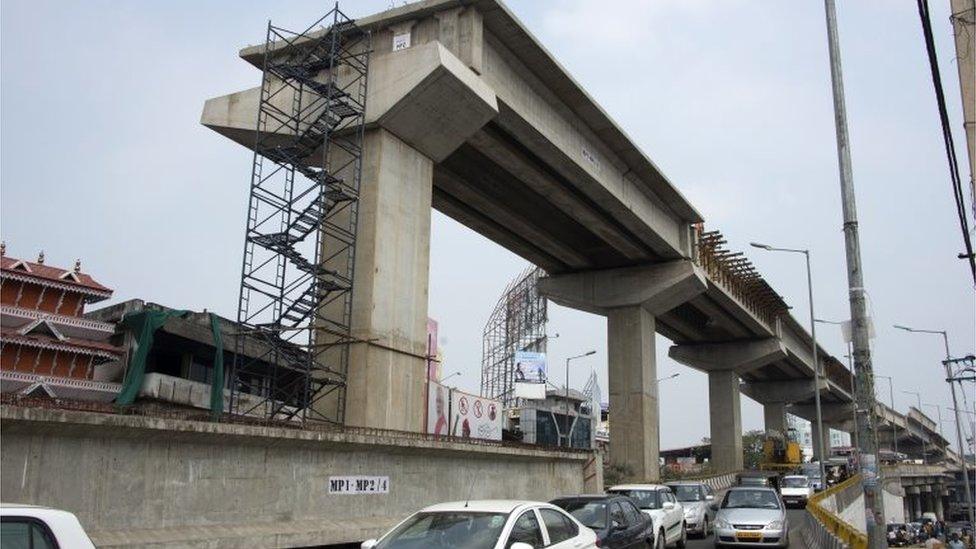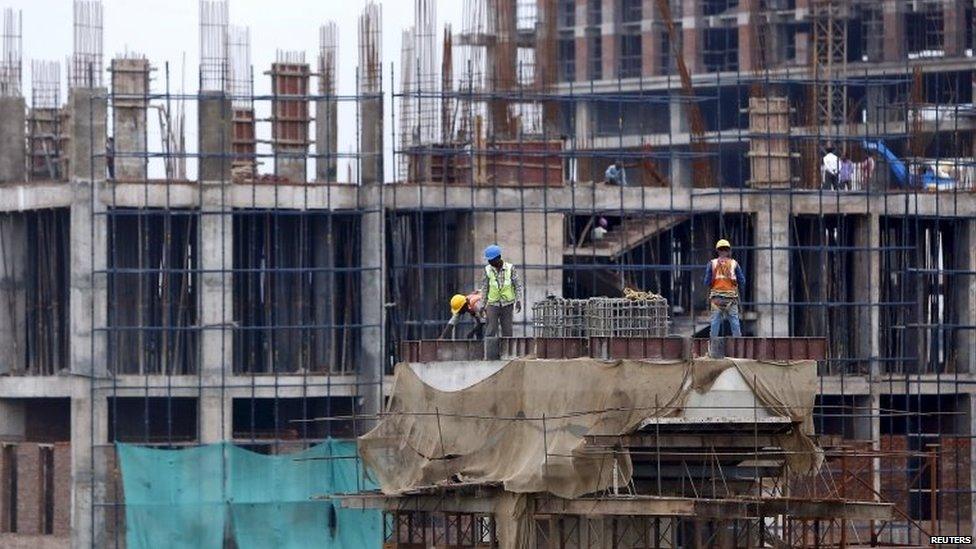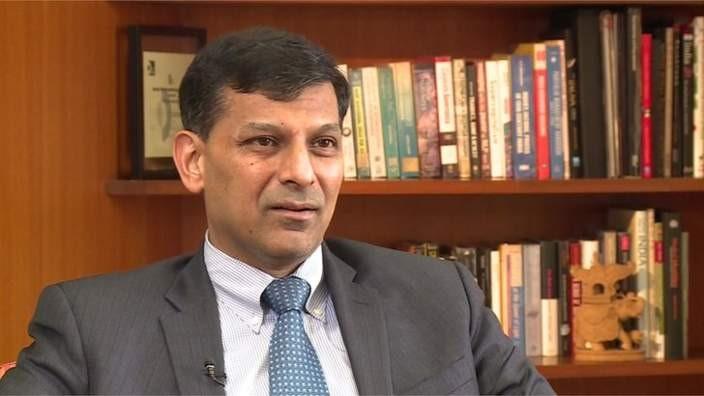India and the economy: Your questions answered
- Published

Ease of doing business, red tape, shoddy infrastructure and archaic labour laws are all concerns for big companies who want to invest in India
Is India really rising? How is the China devaluation affecting it? Is the country wasting money on space programmes when such a high percentage of its population lives in poverty?
These are among the many questions on India and the economy we answered on our Facebook page on Wednesday morning.
Questions came in from across the world on a range of economic areas, all of which can be found on the BBC News page, external.
Here are a few examples:
Ram Chandra: Miss Vaswami, What is it about India that the country is not attracting big enterprises like China did. Is globalisation dead?
A lot of the complaints I hear from foreign investors who want to invest here are the same ones that used to crop up five years ago when I was last reporting for the BBC here.
Issues such as ease of doing business, red tape, shoddy infrastructure and archaic labour laws are all concerns for big companies who want to invest in India - but it IS getting better.
Manufacturing companies are looking more closely at India as an alternative base to China - as wage growth there has made it more expensive for companies to do business.
What India needs to show the foreign investment community and its critics is that it serious about taking on painful but crucial economic reforms - many in the business community have told me they're disappointed with the lack of progress on passing important bills during the last parliamentary session

India needs to show the foreign investment community and its critics is that it serious about taking on painful but crucial economic reforms
Sendoi Likwasi: Does the devaluing of China's currency positively or negatively affect India's economy in terms of trade?
Predicting what might happen in the currency markets is very difficult.
The Indian currency has depreciated against the US dollar since the devaluation of the Chinese yuan earlier this month, but not by as much as other currencies in the region.
One argument is that emerging market currencies like the rupee must adjust to a lower yuan in order to make their exports more competitive and compete with Chinese goods.
For India, a weaker currency means its goods are cheaper overseas - but it also means the cost of raw materials - like oil - goes up. Currently India is enjoying the benefits of a low oil environment and it looks like it will stay that way for some time to come, but the bigger concern is over what the impact of a weakened Chinese currency might do in the longer term, and whether its devaluation may trigger the start of a global currency war.
Indian central bank governor, Raghuram Rajan: India 'not immune to a China-led slowdown'
Kabir Hussain: What's happening about poverty in India? I saw in a previous comment that they are spending more money on research throughout space, than investing in their own people? Why is that?
I wouldn't say that's entirely accurate.
The Indian space programme is not as expensive as some of those in other countries. The cost of India's Mangalayaan Mission - it's Mars orbiter - was $74m in comparison with Nasa's Maven Mars mission which cost $671m.
India's Mars orbiter
$74m
Cost of India's Mangalyaan mission
$671m
Cost of Nasa's Maven Mars mission
-
Launched on 5 Nov 2013
-
Weighs 1,350kg
-
Closest point to Mars 366km
And as one senior Indian space scientist told the BBC, "$74m isn't going to go very far towards helping the 400 million Indians who it is thought still live below the poverty line".
More than two-thirds of the population still lives in rural villages dotted across the country, and getting them access to jobs, credit and opportunities for growth remains challenging for policy-makers.
At the risk of stating the obvious - India is a massive country and the best way to help lift millions of people out of poverty is by generating economic growth.
Having a space programme is not just a matter of national pride but can also be employed for economic, security and technological purposes.
- Published25 August 2015
